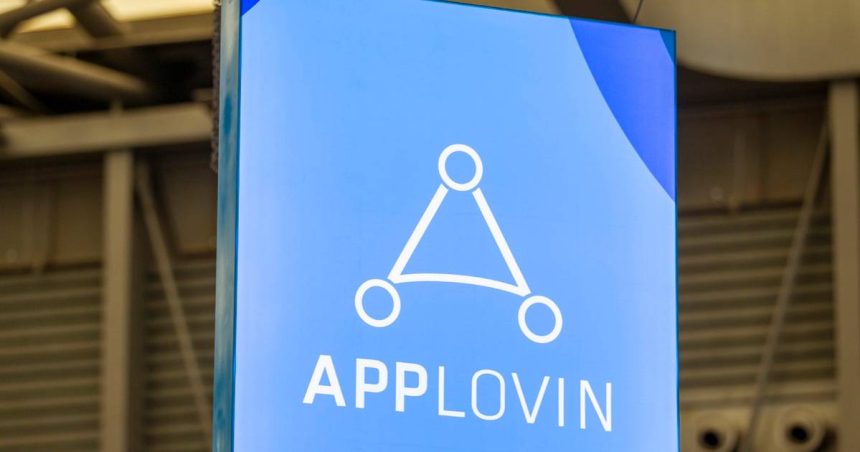Last year, the mobile app advertising platform AppLovin enjoyed a meteoric rise, catching the eyes of advertisers and analysts alike. Lately, though, it’s also caught the attention of critics—including, namely, a quartet of short-sellers who have claimed the company’s success is built on sand.
In March, Muddy Waters issued a report that claimed, among other things, that the mobile gaming ads platform appears to be “impermissibly extracting” user data, violating the terms and services of ad giants like Apple and Meta. Muddy Waters joined a pile-on of short-seller investigations from other firms including Culper Research, The Bear Cave, and Fuzzy Panda.
It’s a bout of bad press for a company that had recently become something of a Wall Street darling. At one point last year, AppLovin’s valuation was up as much as 550%; the company reportedly even submitted a last-minute bid for TikTok.
AppLovin has repeatedly denied the short-sellers’ claims, and in a press release in late March, it announced that it had hired a law firm to “conduct an independent review and investigation into recent short report activity.” When asked for additional comments, AppLovin spokesperson Joshua Grandy pointed Marketing Brew to blog posts the company had recently published. Despite the drama, AppLovin was still considered a “buy” among most analysts in late March, Bloomberg reported, meaning they still considered the company to be a good investment.
“We are fully committed to defending the company, its operations, and its reputation from those seeking to manipulate the market through false narratives,” Adam Foroughi, co-founder and CEO of AppLovin, said in the March press release. “We will take all necessary steps to ensure the facts are known and to protect our employees, stockholders, and partners.”
So, what are the claims?
Both Muddy Waters and Fuzzy Panda accused AppLovin of fingerprinting, a controversial and somewhat ill-defined technique in which ad-tech companies string together disparate data points to identify users. Those data points can range from IP addresses to a user’s operating system.
That practice has been scrutinized because users can’t opt out, Ari Paparo, an ad-tech vet and founder and CEO of Marketecture, told Marketing Brew. Apple’s App Store explicitly forbids fingerprinting and has taken steps to make it harder to do so on its devices; Google had also forbidden the practice across devices, but it has since made an about-face in the name of its connected TV business.
Companies that fingerprint are giving themselves an advantage over other tech platforms like Meta, which would have “too much to lose” if they were caught fingerprinting, Paparo said.
AppLovin has faced accusations of fingerprinting before. In 2021, two months after acquiring the mobile attribution company Adjust, Apple accused Adjust of the practice and rejected updates on any apps that used the company’s code. It was a rare move at the time, Ad Exchanger reported, because while many platforms forbid fingerprinting, those bans aren’t widely enforced.
Get marketing news you’ll actually want to read
Marketing Brew informs marketing pros of the latest on brand strategy, social media, and ad tech via our weekday newsletter, virtual events, marketing conferences, and digital guides.
In recent months, AppLovin executives have spoken up to defend its business. In February, Foroughi wrote in a blog post that the company’s business “is based on transparency and integrity,” and noted that “all of the games we promote are also apps published in the App Store, therefore, they all have to comply with App Store policies.” In another blog post, Foroughi said that AppLovin does not “create alternative accurate and persistent identifiers, typically called device fingerprints,” but noted that it could target users based on “context” signals, which could include “the user’s IP range.”
Those context signals likely aren’t persistent enough to constitute fingerprinting, argued Eric Seufert, a mobile advertising analyst and general partner at the VC fund Heracles Capital. Besides, he noted, “AppLovin is on Apple’s radar as a potential abuser of these rules,” he said in reference to the 2021 Adjust incident.
Short-sellers have also alleged that AppLovin is simply giving itself too much credit as an advertising platform, a practice Paparo said is commonly referred to as “ad-stuffing or cookie-stuffing.”
Essentially, a platform could hone its algorithms to find consumers who it identifies are already willing to make a purchase and then bombard them with “as many ads as you possibly can” in an effort to get the attribution credit, Paparo explained. It isn’t fraud, or against any given policy, but over time, the practice could potentially turn any platform that does it into a less effective advertising tool.
“Smart marketers would figure it out,” Paparo said. “You’re juicing the results and eventually, you’re not producing real incrementality. That’s the argument against it.”
If that was the case, the platform likely wouldn’t have begun its e-commerce practice with such big advertisers, Seufert said, assuming that big spenders are knowledgeable enough to suss out any issues that could stem from cookie-stuffing. Foroughi has also rejected the claims, writing in a blog post in late March that the tools it uses to measure attribution are “standard,” similar to those used by Google and Meta.
The hubbub could also come down to the platform’s communications strategy. AppLovin rarely gives interviews to journalists, and Seufert said the company “developed this culture of extreme secrecy.” Some of its investments “could be seen as hostile to the interest of their clients,” he added, like acquiring a measurement company and rolling out a gaming company while serving mobile gaming advertisers.
Generally, he said, people tend to have questions when a company they haven’t heard of hits a major valuation milestone.
“People were discovering a $100 billion company for the first time, and that raises suspicions,” he said.
Read the full article here






